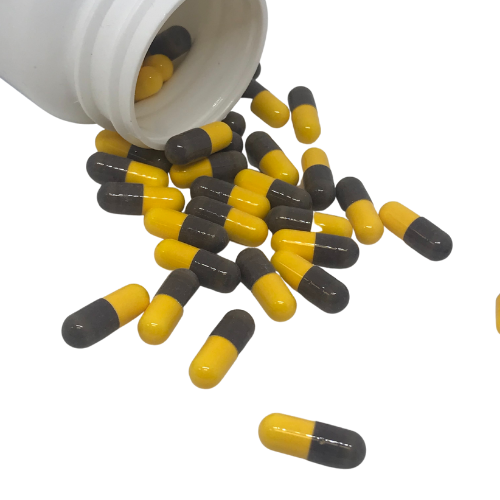Comprehending the Conveniences and Uses of Fenbendazole in Vet Medication
Fenbendazole has actually developed itself as a crucial anthelmintic in vet medication. Its capability to target various parasitical infections makes it a beneficial tool for vets. The drug's system disrupts crucial cellular processes in bloodsuckers, causing efficient therapy results. However, its security account differs between varieties, requiring cautious factor to consider in its usage. Comprehending these dynamics can clarify fenbendazole's broader effects in veterinary care and recurring study into its prospective past conventional applications
Mechanism of Activity of Fenbendazole

Usual Parasitical Infections Dealt With With Fenbendazole
A selection of parasitic infections are successfully treated with fenbendazole, making it a flexible option in veterinary medicine. This anthelmintic representative is especially effective against nematodes, including roundworms and hookworms, which frequently affect pet dogs and pet cats. It is also used for the treatment of cestodes, such as tapeworms, supplying a broad range of action against both sorts of digestive bloodsuckers. Furthermore, fenbendazole is valuable in handling infections created by protozoa, specifically Giardia, which can result in intestinal distress in animals. Its effectiveness reaches treating certain lungworms in dogs and felines, resolving respiratory health and wellness worries linked to these parasites. On the whole, fenbendazole's capacity to target several parasitical varieties makes it an important tool in vet method, guaranteeing the health and health of pets affected by these usual infections.
Safety and Effectiveness in Various Animal Species
The security and effectiveness of fenbendazole differ among different pet species, emphasizing the relevance of species-specific considerations in vet medicine. In canines, fenbendazole is usually well-tolerated and reliable versus a series of intestinal bloodsuckers, including roundworms and hookworms. For felines, nonetheless, its usage is less typical and may require mindful application as a result of prospective damaging responses.
In animals, such as cattle and lamb, fenbendazole demonstrates effectiveness versus various endoparasites, contributing to improved wellness and performance. The pharmacokinetics and potential side results can differ considerably in between species, demanding careful examination by vets.
Horses additionally respond positively to fenbendazole, specifically for treating strongyles and ascarids, though dosage and administration courses need to be tailored to their special physiology. Recognizing these distinctions is essential for maximizing treatment results and making certain pet well-being throughout varied varieties.
Management and Dose Guidelines
Correct management and dose standards are essential for optimizing the healing results of fenbendazole while minimizing possible negative effects. The dose commonly varies depending on the types being dealt with, the specific problem, and the formula of fenbendazole made use of. 222 mg. For pets and felines, a typical dosage is 50 mg/kg body weight, provided daily for three consecutive days, however veterinarians might adjust this based on specific health and wellness assessments
It is essential to provide fenbendazole with food to improve absorption and decrease gastrointestinal distress. The medication is offered in various types, consisting of granules and paste, enabling versatile management choices. Checking the animal's feedback during and after treatment is suggested to validate efficacy and security. Furthermore, vet advice find out here is important to figure out the suitable period of treatment based on the kind of parasitic infection being attended to, ensuring ideal end results for the pet's health and wellness.
Future Point Of Views and Research Study on Fenbendazole
Research study on fenbendazole remains to advance, focusing on its prospective applications past conventional antiparasitic uses. Recent studies have actually explored its effectiveness in treating different forms of cancer cells, particularly in veterinary oncology. Initial data recommend that fenbendazole might prevent the growth of lump cells and improve the effects of other chemotherapeutic representatives.
Scientists are investigating its role in taking care of gastrointestinal conditions in animals, highlighting its anti-inflammatory homes. The versatility of fenbendazole for different types increases inquiries about its safety profiles and ideal application routines in varied populaces.
As passion grows, there is a need for extensive scientific trials to develop evidence-based guidelines for these novel applications. Future study might also explore the systems behind fenbendazole's impacts, possibly leading the way for innovative restorative strategies in why not try here vet medication. The ongoing exploration of fenbendazole can significantly boost therapy options for different veterinary problems.

Often Asked Questions
Is Fenbendazole Safe for Pregnant Animals?
The security of fenbendazole for expectant pets remains unsure. While some research studies recommend marginal threat, vets normally advise care and frequently recommend against its usage while pregnant unless the advantages clearly exceed potential threats.
Can Fenbendazole Be Used in Animals?
Fenbendazole is frequently used in livestock to treat various parasitic infections. fenbendazole capsules. Its effectiveness against stomach worms makes it a valuable anthelmintic, adding to boosted wellness and efficiency in pets raised for food and fiber
What Are the Side Results of Fenbendazole?

The side results of fenbendazole may include gastrointestinal disturbances, lethargy, and sensitive responses. In unusual cases, a lot more extreme responses can take place, demanding careful surveillance and assessment with a vet throughout therapy.
Exactly How Does Fenbendazole Compare to Various Other Dewormers?
Fenbendazole offers broad-spectrum effectiveness versus numerous parasites, usually comparing positively to other dewormers. Its distinct device targets different life stages, making it effective, while usually presenting a favorable safety profile contrasted to options readily available on the marketplace.
Can Fenbendazole Be Used for Dealing With Cancer Cells in Animals?
The the original source potential of fenbendazole in treating cancer in pets has gathered passion. Preliminary researches suggest it may prevent cancer cells cell growth, yet further study is essential to validate its efficacy and safety and security in vet oncology.